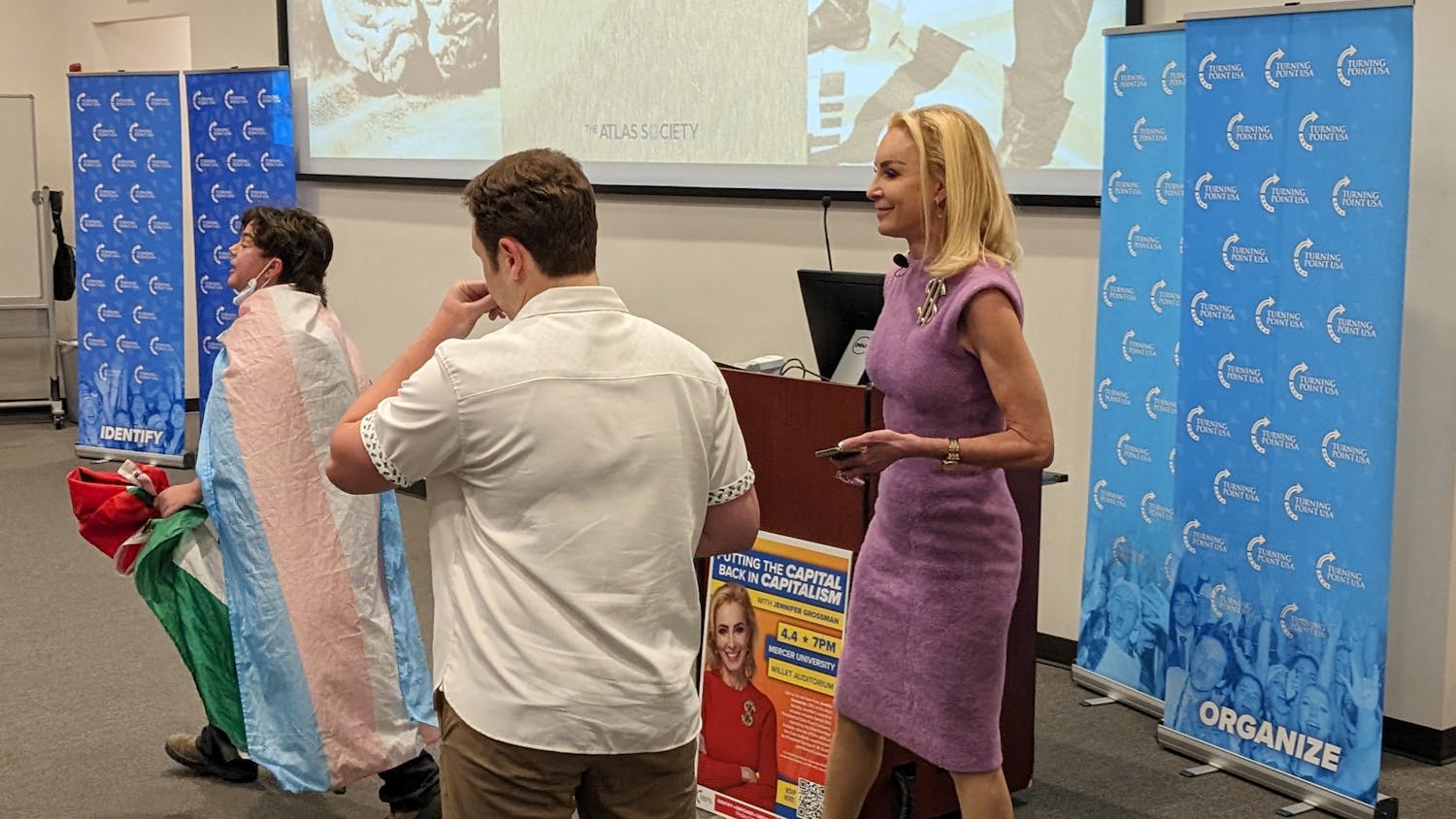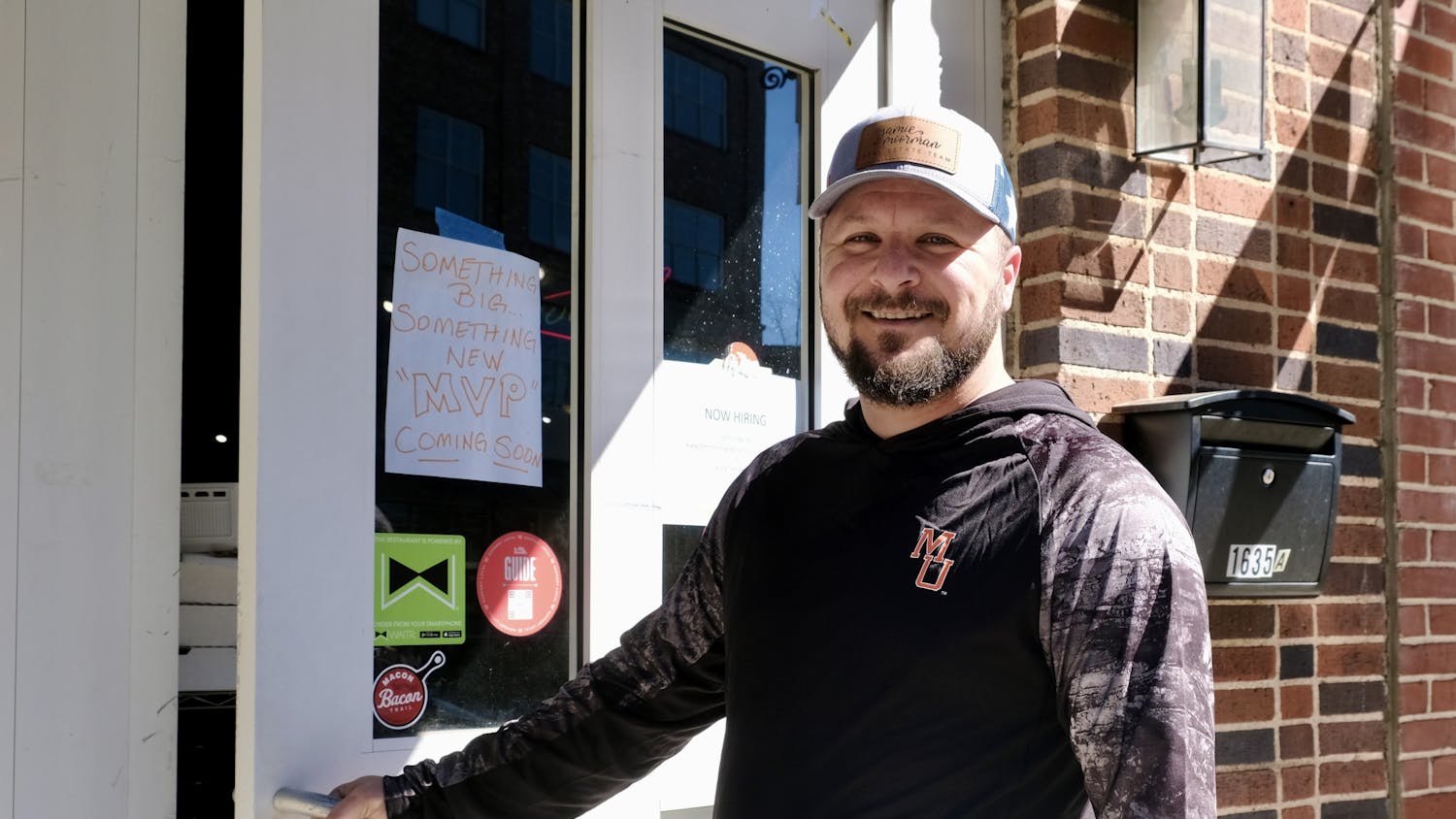In an effort to facilitate an understanding of the role of democracy in everyday life, Mercer’s Lyceum in partnership with the Brazil Institute at Mercer and Mercer on Mission presented a lecture on the subject of democracy in the nations of Brazil and South Africa in the McCorkle Music Hall. Four students who traveled to these nations as part of the Mercer on Mission program shared their experiences and insights about these countries. They discussed what they felt democracy meant within these countries and how people, specifically the poor and under-represented, were affected by institutions that appeared to fail them despite economic growth. There was a focus on how the poor lack benefits of a democratic system that Americans take for granted due to its democratic system.
The overall question that the panel of students sought to answer was whether disadvantaged people were able to participate within a democracy. Melissa Thompson, a junior Psychology major, and Joshua Soave, a political science sophomore, traveled to Rio De Janeiro in Brazil which currently has the 30th largest gross domestic product in the world and second largest in Brazil. However despite its wealth, Rio De Janeiro faces a large problem with poverty. Thompson described what she witnessed as, “a whole new world. It was very surreal. ” In her travels she said that, “I got to see exposed sewer systems, bad smells and as you climb higher and higher it gets worse and worse.” However, she describes interacting with the locals as a different experience, sharing a story involving two children. “I was holding their hands and these men approached me and were saying something to me. I couldn’t understand them but a translator later said, they are telling you that you are their new mother. It was amazing to see that they were so full of life and so happy,” said Thompson. The children lacked a stable household and for Thompson it was a unique and unforgettable experience. Soave, on the same trip, described the favelas as lacking, “electricity, clean water and played with kids,” like the ones Thompson talked about. He explains that a favel is the term for “shack” and they are situated on hills comparable to mountains. “Walls were built up to stop people from seeing them,” said Soave as the country prepared for the Brazil 2016 Olympics. This dismayed Soave and he said, “how do you define democracy? It’s more than just voting, it’s about inclusion in civil society.” The walls that he saw symbolized the rich part of Brazil attempting to exclude the poor from the benefits of democracy by going so far as to block the favelas from sight.
Dalton Turner, a political science junior, and Chase Williams, a political science senior, who both traveled to South Africa also witnessed the building of walls, literally and socially, and its effects on the society and democracy. Turner said that South Africa is plagued with, “a lot of corruption and misuse of funds,” he went on to say that, “it’s hard to think of voting when basic needs aren’t met like hunger.” Williams agreed and added that, “their ability to work with and benefit from democracy is inhibited by poverty.” At the end of the lecture the panel came to the conclusion that until basic needs were met and the governments of these nations worked to provide job training and facilitated cheap or even free transportation to people, the lives of the poor would be characterized by squalor.




